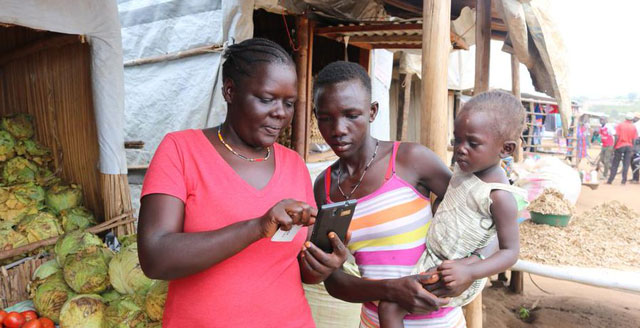
Kampala, Uganda | THE INDEPENDENT | MTN Uganda’s income tax paid to the government increased to 48.1 billion Shillings in the first quarter of this year, as the network’s subscriber base jumped to 17 million.
In the same quarter (January to March) 2022, the company paid 43.2 billion Shillings, amidst complaints by President Yoweri Museveni that the telecom sector was a hotspot for tax evasion.
The growth in the tax paid this quarter was mainly due to the growth in revenues of the company in almost all the business segments, including the newest, YoTV, an online TV platform.
Users pay 1,500 Shillings a day to access several TV channels using their mobile phones.
In total, revenues grew by 16 percent to 627.9 billion, while service alone grew almost at the same pace, to 621.1 billion shillings.
Service revenue is revenue from services mainly voice, data, and financial tech products, and excludes segments like the sale of devices.
There was sustained growth in the data and fintech segments as well as a strong recovery in voice revenue.
Voice revenue, which is usually from telephone calls, had been slowing down as more subscribers opted to use data over messaging app, Whatsapp, which they find a cheaper option.
The company’s financing performance report for the period attributes the recovery in voice revenues and growth of 8.8 percent, largely to the growth of 11.6 percent in the subscriber base.
The subscriber base grew by 600,000 over the quarter, according to the results, which show that the number of people leaving the network also fell.
“Our customer net additions in the quarter were 600,000 attributable to improvements in our service offering and affordability. We are also pleased that our customer-centric initiatives drove increased voice usage and reduced subscriber churn,” said Chief Executive Officer, Sylvia Mulinge.
However, independent analysts say the reduction in the subscribers exiting could also be attributed to the reducing options, following the closure of business by some companies in recent years.
These include Smart Telecom and Africell which closed in the second half of 2021 citing the effects of the Covid-19 pandemic on their businesses.
This left MTN and Airtel as the dominant networks, joined by the recovering government-owned Uganda Telecom. Despite the growth, the voice contribution to service revenue decreased to 44 percent, from 46.8 percent in the previous quarter.
Data continues to gain the share of revenue contribution, increasing by 25.7 percent.
Apart from the increase in user numbers by 25 percent, the average amount of MBs consumed by each active subscriber grew by 11.6 percent.
Mulinge attributed this to “our continued investment in the capacity and quality of our networks.”
The company says that its smartphone penetration improved to 34.7 percent in the first three months of this year, compared to 31.4 percent that was recorded in the same period last year.
“It also underpinned the growth in data traffic on the network of 53.5 percent, with 4G traffic making up 68.3 percent,” Mulinge says.
She is hopeful that business will be better in the next quarter and year, especially if the Bank of Uganda’s economic growth projections are to go by.
New investment plans include preparation for the 5G Network “to address our customers’ requirements and support sustained growth,” according to the company.
MTN Uganda launched a partnership with Huawei Technologies to align the infrastructure towards a 5G Capable Core network.
In MTN Mobile Money, the performance saw the number of active merchants double to 268,000, with a notable increase in transaction value by 35.5 percent, while the number of agents remained flat at 164,000.
The company says this is in line with the agent rationalization strategy aimed at controlling the numbers “to ensure more sustainable businesses for our distribution partners.”
The expansion of merchants enabled an increase by a quarter in the number of transactions on the platform to 753 million, while a total of 28.5 trillion shillings was moved, which is 35.5 higher than in the same quarter of the previous year.
The digital portfolio revenues grew by a huge 170.5 percent to 2.7 billion shillings supported by robust growth in the video streaming platform (YoTV).
“This was further supported by strong digital subscriber growth, particularly on the ayoba super app, closing with 1.2 million customers.”
*****
URN
 The Independent Uganda: You get the Truth we Pay the Price
The Independent Uganda: You get the Truth we Pay the Price



